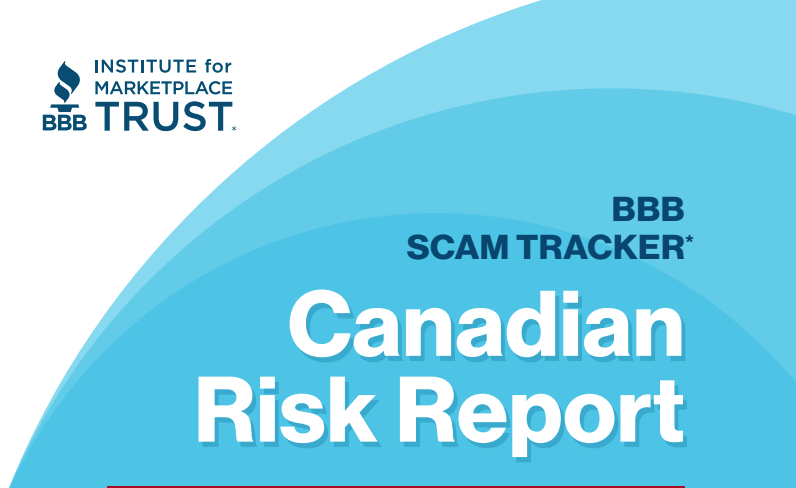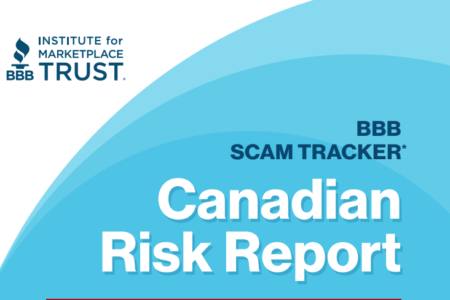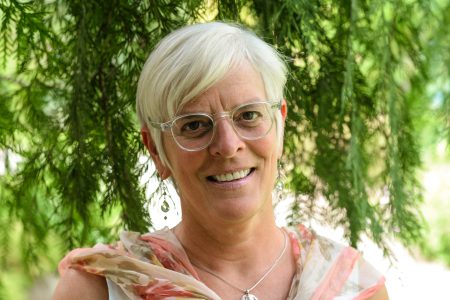Five Tips to Protect Your Grandparents’ Privacy & Money Right Now
In today’s world, where technology keeps changing and scams are getting trickier, it’s really important to help our grandparents keep their private information safe and their money secure.
BBB serving Mainland BC & Yukon recognizes that National Grandparents Day, celebrated on September 10, is a timely reminder of how important it is to spark a conversation about privacy and financial security with your loved ones.
“Spend this Grandparents Day helping them stay safe and secure when you’re not around, as there are tricky scammers who want to take advantage of them and their money,” says Aaron Guillen, Media and Communications Specialist, BBB serving Mainland BC & Yukon.
“It’s up to us to show them how to be smart online so they can enjoy their senior years without worrying about scams.”
Canadians aged 65+ are losing a median loss of $239 to scams every year, according to the 2022 Canadian BBB Risk Report. This is an increase from the year prior, with a median loss of $200. In addition, the overall susceptibility (the amount of times people fall for a scam after being exposed to it) has slightly increased, from 40.8% to 42%.
Here are five ways to protect your grandparents today:
- Actively review their phone’s app access
Some apps enable location services, bluetooth, microphone and camera automatically, so make sure you know what information is being shared with the world. For example, Google Maps tracks everywhere you’ve been with a feature called Timeline. If a hacker cracks your Google account, they’ve got full access to your home address, your place of work, or any place you visited that you used directions to get to on this app. If you don’t want that information being tracked, you can ‘pause’ location history and turn off that feature within the app. They could have payments methods already tied directly to in-app purchases or to their online browser, so double-check those options.
- Agree on a ‘safe word’ in case of emergencies
Using a “safe word” when someone calls you in an emergency is a crucial communication tool that adds an extra layer of security and protection. This piece of advice will help avoid grandparent scams, in which a scammer impersonates a loved one, usually a child, grandchild, or close friend, and demands bail money for an emergency. The plea is so persuasive that the grandparent wires money to the scammer, only to find out their family member was safe and sound all along. Lately, scammers are using AI tools that mimic voices from data that is largely coming from public social media accounts. In essence, a safe word acts as a lifeline of trust, allowing you to differentiate whether the caller request is real or not.
- Take inventory of their passwords
Are they all long and strong? Change any that aren’t. Use a unique password for each account by creating a ‘passphrase’. Consider using a password manager to store and protect their passwords. Turn on multi-factor authentication ‒ also known as two-step verification or two-factor authentication ‒ on critical accounts like email, banking and social media where available. Check your passwords against the Have I Been Pwned tool. You can quickly search to see which of your passwords or emails have been exposed in large-scale corporate data breaches so you can know which ones to change immediately.
- Create a will, if they don’t have one already
Money is always a sensitive topic, but make sure you don’t keep avoiding it until it’s too late. If your loved one doesn’t have a will when they die, provincial laws can determine who takes ownership of your assets and the costs to administer your property will increase. Wills are strongly recommended for those who have children, a spouse, or valuable assets, such as a company or stocks. Although you can write your will yourself, it’s a good idea to get help from a lawyer to make sure your will is legally binding. If your will isn’t considered legal, it could create problems for your heirs. Having a will protects your family and your assets.
Look for the Sign of a Better Business by going to BBB.org and trusting an Accredited Business to get the job done right as your notary or lawyer.
- Purge old digital files
Clean out their old email, files, and downloads. Always empty the trash when you’re done. Unsubscribe from newsletters, email alerts and mailing lists you no longer read. Remove information in any of your accounts that isn’t needed, such as saved credit cards or old documents in cloud storage. Delete your financial information from any unnecessary online locations. Backup your remaining files to a cloud store or external device you both trust.



























Comments